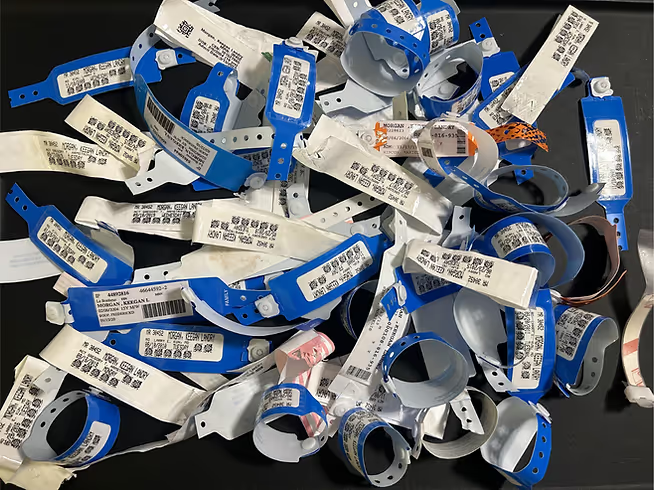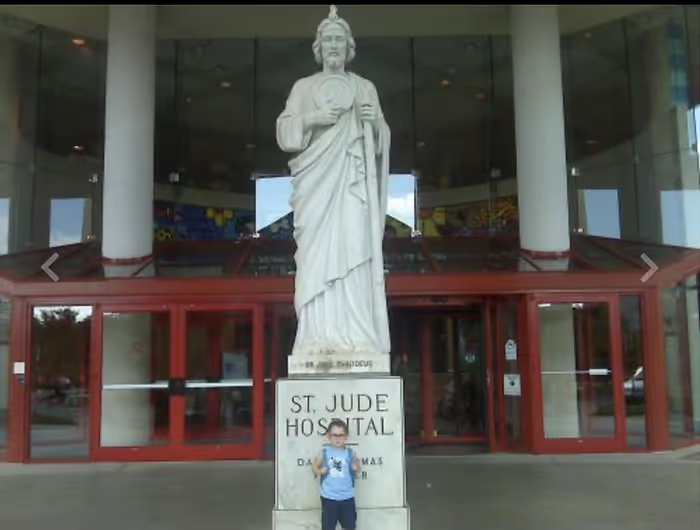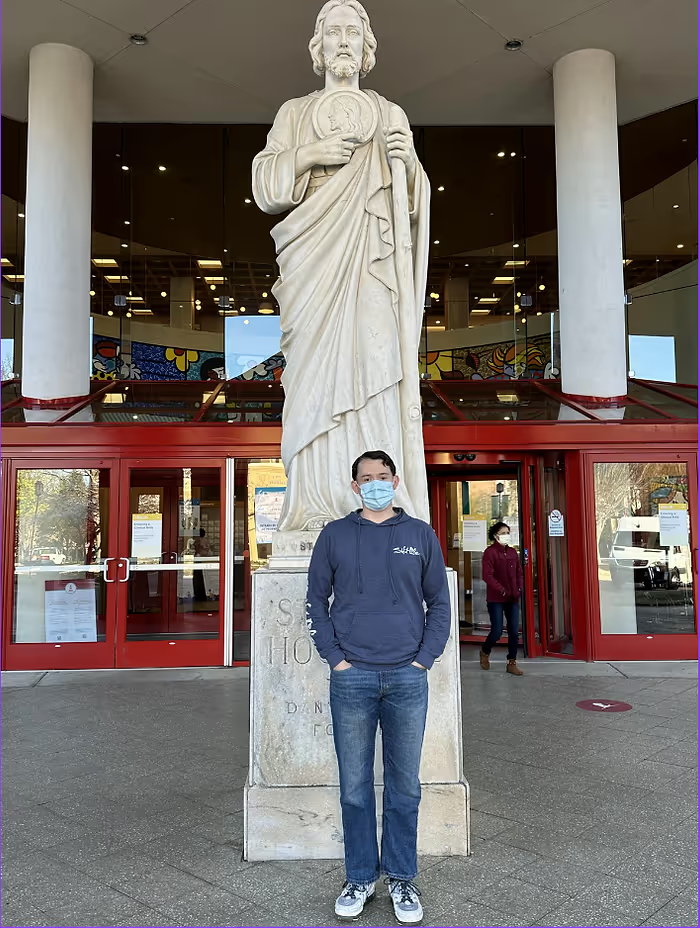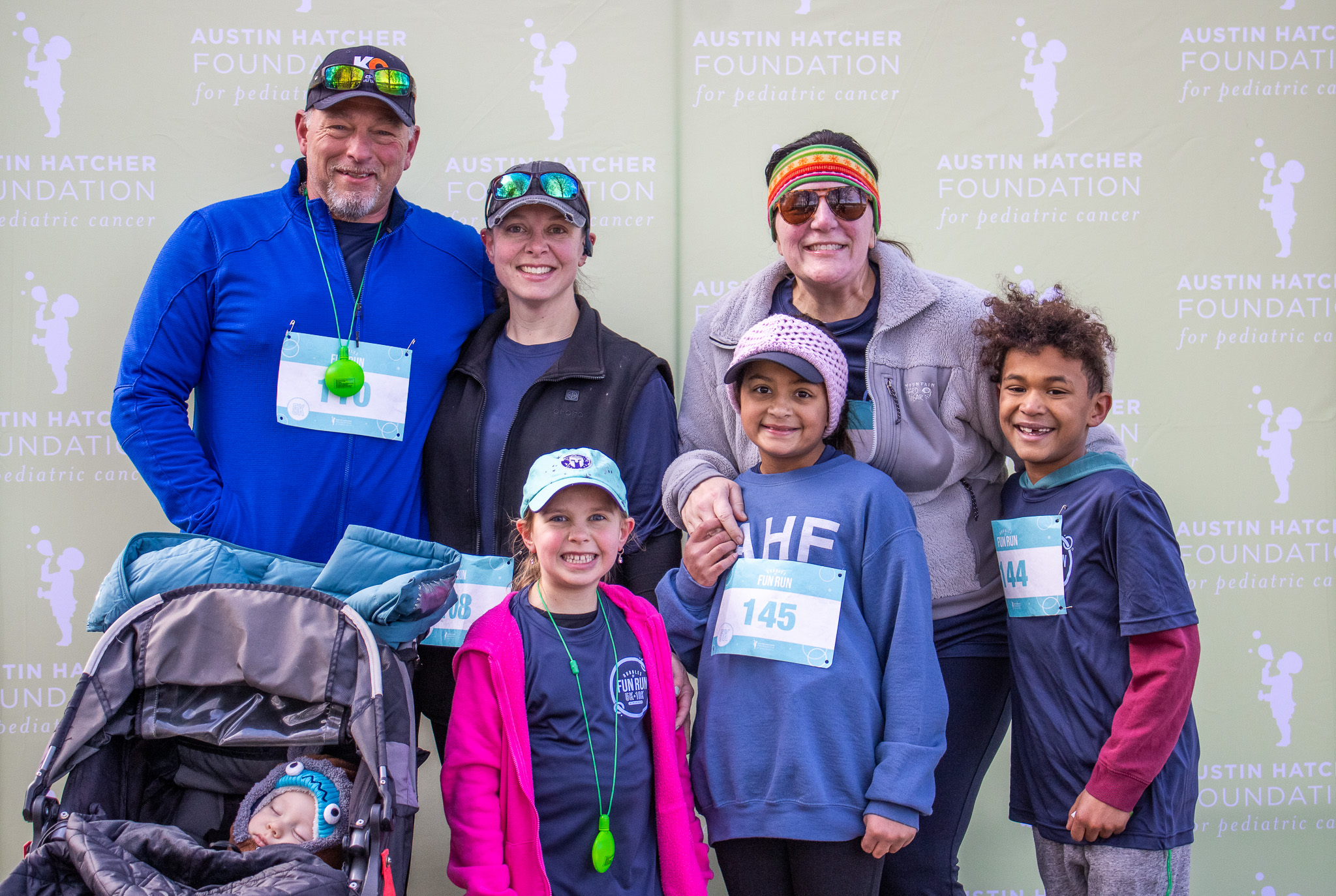Effects Of Childhood Cancer On Education & Keegan's Story
Keegan recently graduated from high school. As his senior capstone project, he presented the following paper on the effects of childhoods cancer. Keegan has a unique perspective. He not only researched the effects that childhood cancer treatment has on education, but as a pediatric brain tumor survivor, Keegan has lived this out as part of his story.

Why is it so important to learn about the ways pediatric cancer diagnoses impact the education of kids with childhood cancer? Because it gives us the more in depth detail on how kids with cancer live their lives day to day. These treatments impact these children in school, throughout their education, and can sometimes set them back from everyone else.

Examples
Some examples of this is the patient going to their doctors and getting treatment for their cancer which leads to setbacks in school and puts a ton of work they will have to catch up on when they go back to school after their treatment. ResearchGate reports that thirty five percent of school days are missed due to treatments and side effects (Charleton). What this means is kids who have cancer may not be able to even go to school for most of the year, due to them having to do treatments. Some kids with cancer may not even be able to get to school, and that really depends on what type of cancer the child is born with. This is just one of the many obstacles kids with cancer have to overcome. Another example of how these cancer treatments impact a child with cancer's education is the type of cancer, such as a child who has a brain tumor. It can affect memorization loss, or make it hard for them to learn.
Causes of Academic Struggles from Cancer and Treatment's Late Effects
The cancer treatments can lead to late effects further in life- chemotherapy damages the bad and the good cells due to radiation therapy. According to the American Cancer Society “Doctors try to avoid using radiation therapy to the head or to postpone it in children younger than 3 years old to limit damage that might affect brain development. But even in older children, radiation may cause problems such as learning disabilities.”
- For children who are treated with a brain tumor or leukemia, some problems that may show up later in life are: lower academic achievement test scores, problems with memory and paying attention, and poor hand eye coordination they also may have a lower IQ.
- Some problems that lead to kids with cancer potentially missing school include seizures and frequent headaches (Late Effects). Some other late effects kids with cancer could get later in life are muscle and bone problems, such as weak bones that can break easily, changes in the way the person walks, and joint stiffness.
- Late effects that a child with cancer may have later in life are problems with their lungs such as decreased lung volume, shortness of breath which could impact their exercise as well as increased risk of lung infections and lung tissue.
Development
The significance of the problem / challenges & complications relate to child development. In the article, “Learning Problems after Treatment,” published by Children’s Oncology Group, which is a part of the National Institutes of Health, these challenges are discussed. “Children go through four recognizable stages of development from birth to adulthood that are typically conceptualized as infant, toddler/preschool, school age, and adolescence. The impact of cancer treatment depends on the developmental stage of the child as do recommendations for mitigating adverse sequelae.” (“Learning problems after treatment.”) What this shows is that cancer is not necessarily rare to be born with because we all in our lives are born with something, no one is ever the same. What I mean by that is some people are born with food allergies and other things that can change their life in some way besides having cancer. How this connects to these quotes is normally someone either born with cancer or some type of allergy doesn't normally figure out they have that problem until they get older. How this is different with cancer is sometimes if kids are born with cancer you can tell almost immediately and that is how my parents found out that I had my brain tumor. So really sometimes you can tell right away if your child has cancer or not but sometimes it takes time to realize maybe your child might have some type of cancer and learning that, especially when you are the parent of the kids, is very heartbreaking and some words you never want to hear.
Sarah Brand, a physician in the Department of Psychosocial Oncology and Palliative Care at Dana-Farber Institute in Massachusetts, writes, “As children exist in the context of families, interventions to mitigate the impact of cancer treatment are described at each stage of development and recommendations are provided for the child, the parent, and the family.” (Brand) This evidence shows the significance of the problem kids with pediatric cancer go through, and what challenges they have to face by showing us that it is difficult for some kids to go back to school after treatment, not just because of the work, but because of the environment they walk into and hopefully when they walk back into their school they will be welcomed with open arms and accommodated for the different ways school will have to work for them. But the real question is why do we want to learn more about this? I believe we should really learn more about this is so we can understand how different school is for them from everyone else because any form of cancer can give a child some type of complication which they have to overcome. The reason behind that is all we know is a kid is just diagnosed with some form of cancer. We don't actually know the development of them beginning to get cancer.
Why It's Important to Learn About This
That is why it is so important we learn about it because it gives us a different vision on how the world is different for each and every person. “When a child or teen is diagnosed with cancer, families and parents will face and need to cope with many problems, including the impact of a child's cancer diagnosis and treatment on regular school routines. A child's cancer diagnosis and treatment can interrupt regular school routines. What these interruptions are is the kid having to wake up in the morning and taking pills or if they have a different type of pediatric cancer they might have to do some type of treatment in the morning to help them get through the day. Many children are able to continue their education during treatment and then will go back to school full-time at the end of treatment.`` (Returning to School)
How this quote helps me understand the causes and effects and really the significance of this problem, is that it shows how families who have a child with cancer have to go through hard times and understand their child being diagnosed with some type of cancer. This quote shows us that some kids with cancer will have some interruptions while they are in school, because they may have to potentially every once and a while get some type of treatment for the cancer they have which can mess up them going to school.

Challenges
The challenges these kids face when they are having their treatment for their diagnosis are setbacks in school but also it makes them have a lot of anxiety. The U.S. Department of Education writes, “Because childhood cancer is so rare, teachers and professors may work their entire careers without having a cancer survivor in one of their classes. That is why it is so important for parents to be knowledgeable about their child’s cancer, treatment, and the potential effect on school progress.” (Educational Challenges) Some specific examples of how kids with pediatric cancer diagnoses affect their school progress is when they are out of school and at the doctor getting treatment. The impact of missing school while having cancer is that you will go back having a lot of work to catch up on this is just one of the many burdens that come with having cancer but it is very possible to overcome as long as you look into the future and tell yourself to push through and just get your work done because in the end you will feel accomplished. How this evidence connects to the focus on my paragraph is that it shows the effects cancer has, not only on the patient, but the parents as well, and it shows how much the parents have to get involved to make sure their child's school knows of the commemorations this child needs in order to come back to school. Matthew C. Hocking from the Parelman School of Medicine, The University of Pennsylvania, Philadelphia, writes, “Childhood cancer can disrupt this developmental process by interfering with school engagement and negatively impacting academic achievement (Swain, 2006). Maintaining pre-illness academic achievement and participation in school-related activities is an important goal for youth with cancer and has been related to enhanced quality of life (Swain). Furthermore, evidence from epidemiological studies indicates that certain at-risk survivor groups achieve diminished educational attainment compared to the general population (Kuehni et al., 2012; Lancashire et al., 2010).” (Hocking, Matthew C.) How this evidence connects to the cause of cancer is it shows that cancer can affect the disrupting of the developmental process in the brain and also this indicates what causes some children with cancer to lose memorization and not be able to memorize things easily.

Biblical Perspective and Personal Story
We see beauty reflected in kids with pediatric cancer or adults who have it and know that they are different from everyone else in this world but what they are diagnosed with is what they were born with. So, we know the complications we have and we know we are different, but these are gifts the Lord gave us. From my personal story, my brain tumor has allowed me to do so many amazing things, such as finding the sport I love playing so much, and allowing me to be on the radio and on the news, and have articles written about me, all of which I see as a gift. Yes, the Lord gave me some complications in my life, but he also gave me a gift which I am very thankful for and the life I have today.
Kids with pediatric cancer never stop fighting for their life. All of this is not just a mental game, but as well as a physical game. For kids and families struggling with pediatric cancer, I want to say: never give up. That will lead to hardships or possibly death, depending on how severe the cancer is. Healing is not just about the physical. The stronger the mindset you have, and the more courage you find, in the end you will get the result that you fought so hard for. As long as you believe in your doctors and the Lord above and in yourself, then nothing in this world can overcome you. These are the exact words I personally have been living by my entire life because I know that through all the treatments and the difficult times, it's never easy. That's why I am so thankful for the Lord, and the people I have in my life, because I know that at the end of the day, we can all look back when it is all over and tell ourselves all this time all we needed to do is believe in ourselves just as others believed in us.
About the Author: Keegan's Story
When I was five years old, my doctors diagnosed me with a brain tumor. A Craniopharyngioma. This was a tumor located exactly in the middle of my brain. My parents didn’t know that I had a brain tumor until I stopped growing one day, which required an MRI. When they heard I had a brain tumor, they didn’t know what challenges would come with a kid who had such a big obstacle to overcome. I am very thankful for both of my parents because they have gotten me to where I am today. Not only have I achieved the honor of becoming a senior in highschool, but I am fortunate to be where I am today. No one thought I would get this far due to the complications that the brain tumor gave me.
The tumor I had for many years created barriers I was able to overcome due to the doctors in my world. My first surgery, a transhpenoidal craniotomy (surgery via the nasal passage) was in 2010. I was 5 years old at the time and had a limited understanding of the consequences of such a surgery. The surgery was difficult and had to end before a complete tumor resection due to complications. This surgery left me with no ability to make many important hormones called Panhypopituitarism. The surgery left me with attention problems. I have taken many daily medications everyday since the age of 5. I am incredibly thankful for the science that has produced the medications which allow me to live a normal life. That’s what I have, a normal life.
In early 2020, I had to have a second craniotomy. The tumor had returned and it was pressing on my optic chiasm, which would eventually cause blindness. The effects of this surgery and the first surgery have caused many obstacles in my life. I have trouble focusing without medication, I don’t grow without medication and I don’t produce any hormones. The largest obstacle in my life other than daily pills and injections is the daily attention medication I require. I am thankful for the ability to treat such a problem and have success in managing my symptoms. Although I have overcome so many bumps in the road that is my life, I am a normal teenage guy entering into the college phase of my life. Every single day of my life after the age of 5 has been a fight to survive, a fight to live a life of quality and “feel” normal. We tend to take “normal” for granted, but I would settle for anyone else’s “normal.” My parents and physicians at St. Jude Children’s Research Hospital in Memphis, TN have given me the quality of life that I deserve. It has its challenges, but this life is amazing and I wonder at it everyday. I am thankful and I look forward to my future.





.png)
